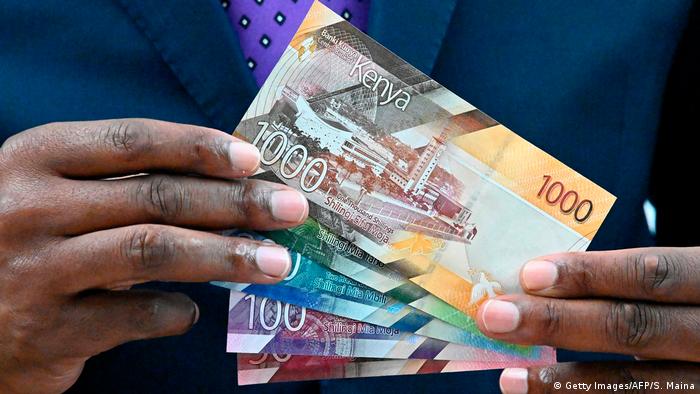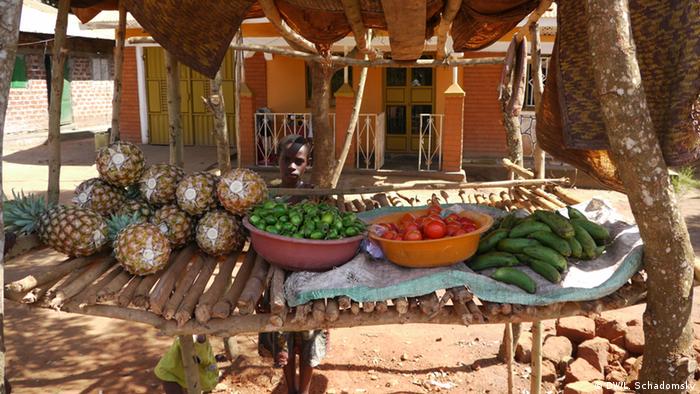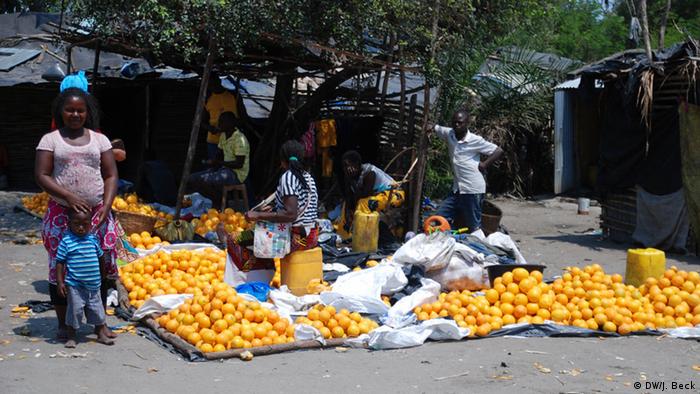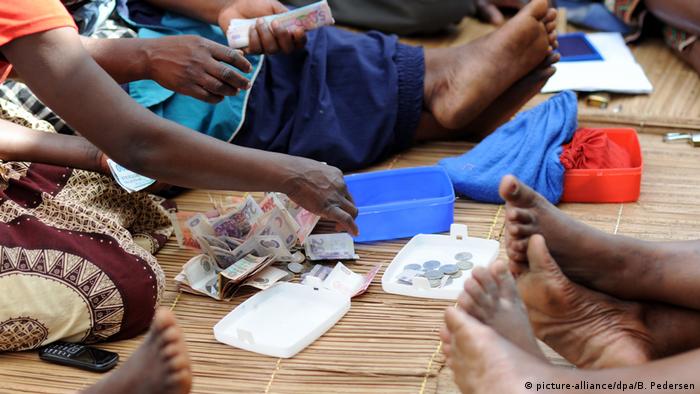Microcredit was once considered to be a miracle weapon against poverty in Africa. However, the euphoria is over, some experts even think it’s dangerous and an obstacle to development. The expectations were too high?

Celine Yelpoe is 39 years old, mother of three boys, and poultry breeder. She lives with her family in the town of Bole in Northern Ghana, where it operates since 2007, and a chicken farm. Once you started with 50 animals. Not even two years later there were 900 – financed by a so-called micro-credit. A success story – told by the Foundation, Opportunity International, the awards of such loans. The principle is that Small sums are awarded, so that poor people can build an economic existence. Alone Yelpoes lender Opportunity International (OI) in Ghana currently to 150,000 borrowers.
Many decades were considered micro-credits as a miracle weapon in the fight against poverty and unemployment. Muhammad Yunus, an economist from Bangladesh, is considered the father of the idea, the price received in 2006 the Nobel peace prize. He believed that world poverty would be history, if only enough Mikokredite would be awarded.
To high expectations
A large number of development organisations and banks were in the business with micro-loans. In Africa, too. 2018, approximately 8 million people on the continent micro-loans worth a total of US $ 8.5 billion (the equivalent of about 7.7 billion euros). The number of loans increased between 2002 and 2014 in order to 1.312 percent.

The step into self-employment through micro-credit loans possible
However, according to world Bank estimates, half of the total population lives almost in Africa is still below the poverty line. The micro-credit have changed very little. The expectations had been too high, says Rainer Thiele, head of the Research Department, poverty reduction and development at the University of Kiel. “In the development of policy instruments as a panacea always come. People are supposed to be self-employed, a Business to build up the industrial sector to strengthen and fight poverty,” said Thiele of the DW. This could be achieved with a single Instrument is difficult.
Milford Bateman, an Economics Professor at the University of Paula in Croatia, and considers micro-loans, even for development hostile. From his point of view, they strengthen the poverty even. “Nowhere in the world there are so many micro businesses in Africa. The idea was to Interview that Africa takes this informal sector distance, in order to develop and fight poverty,” said Bateman at the DW.
Because the informal sector workers often work for wages continue to be Hungry and stay poor. Bateman believes that poverty can only be bekämpt that the new companies and well-paid jobs. Instead, make a donation, and commercial funds were pumped into a sector with no growth opportunities. “This has led, for example, in Uganda, to a standstill of the economy and to a stop of the fight against poverty,” said Bateman. Micro-loans used solely for the distributors. “With micro-Finance, you’ll make millions of dollars – even if you destroy communities for it.”

Experts criticize: informal businesses to hinder the economic development of a country
Thiele believes, however, that micro-credit would not clear the poverty advocates. “Studies have shown that The repayment rate is very high, small business expand and profits rise.” Disappointing was that micro loans could have rates no major impact on the poverty rate or school Enrollment. Some people are pushed to the event according to his information, the loans in a debt.
Investments in the family
Anke Luckja of “Opportunity International” provides for the loans to be positive. In ten African countries, the Foundation is active. “80 percent of our borrowers are women, the need for working capital.” From your income you would invest on average 76 per cent in their families, nutrition and education. The repayment ratio would be at OI 98 per cent.
That micro-loans lead to debt, would be donors to the credit, so Luckja. “It’s not about to forgive a loan at exorbitant interest rates. You have to look: Can support the person the credit? It is the right amount? There is a market? If there are nine tomato stands, it is necessary to invest in a tenth?”
Farmers remain on the outside
However, according to Bateman, it is the “tomato stands”: it is Not the micro-loans were the Problem, but that they can only be used for the support of micro-enterprises.
However, micro-entrepreneurs at some point in the past, had to be, the policy says to be Kiel’s colleague Thiele. To grow “in order to continue, need, informal businesses at some point a formal loan. Of is in developing countries, but hard to come by.” Attack would make taxes in addition to the entry into the formal sector for many small businesses unattractive.

Experts emphasize that Saving is important
Second Problem is that micro loans are intended for the urban population. For farmers, the repayment is due to an irregular income is difficult, so Thiele. According to the world agriculture report, more than half of all Africans from the agriculture lives, but one reason why micro loans in Africa are far less present than, for example, in Asia.
‘Has a better effect’
The Hype for micro credits is over – but that does not make him, in spite of everything superfluous, says the Kiel economic researchers Thiele. “There is a need for poor people who want to start businesses and not have access to the capital market.” Micro-loans are quite justified, if as a result, the poor population of wealthy would – also without effect on the entire economy of a country.
Anke Luckja of “Opportunity International”, in addition to the micro-credit is still a further need. “The whole industry has learned that the effect of Saving is much greater than that of loans. We make clients aware that they should save for emergencies such as diseases or accidents, so you don’t have to rely on credit.”
In a UN report States: “Alone of the micro-credit can African economies fundamentally change. However, it is desirable to provide the poor with financial services – including loans for small and micro enterprises.” Micro-loans, if applied properly, an Instrument of poverty reduction – a panacea, they never were.